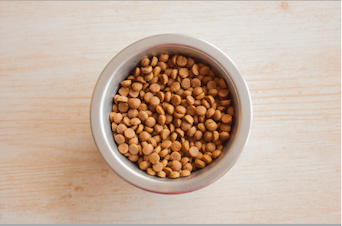Pet Food Trends to Watch for in 2019
Pet food retailers will be looking to give pet owners more of what they want: customizable, health-promoting, safe food options for their dogs and cats.

Initial tallies put the total sales of dog and cat foods in the United States at $27 billion for 2018. This represents a 4% growth over the previous year, according to a new report from the market research firm Packaged Facts.
Growth over the past year is being attributed largely to the increase in online sales, which the report credits to amazon.com and chewy.com. The abundant use of these 2 websites, in particular, has made up for the notable decline in brick-and-mortar pet food sales.
“Although brick-and-mortar retailers have been losing sales to e-tailers, the internet has been delivering incremental sales growth in the pet market overall,” explained David Sprinkle, research director for Packaged Facts. “E-commerce sales have, in fact, been so strong that they have been more than offsetting sluggish pet product sales in other channels.”
According to Packaged Facts, an estimated 12 million households bought pet products online last year, with sales bolstered by competitive pricing and the seemingly infinite number of sellers and products. This number will only increase in the coming years, Sprinkle predicted, in part as a results of the following market trends.
It’s Getting Personal
Pets are as unique as their owners, with specific dietary restrictions, taste preferences, and caloric needs to match their individual lifestyles. Pet food retailers recognize this and are playing into this budding trend with the advent of personalized pet food options. For example, the JustFoodForDogs in-store Petco kitchens allow pet owners to watch their dog’s food being made using human-grade ingredients approved by the USDA. Purina’s Just Right brand of dog foods uses details from a survey that pet owners complete to formulate a custom blend of pet food that is then delivered right to the customer’s home.
“Customized, personalized pet foods embody a range of overlapping trends, taking advantage of the ease and convenience of online sales, the desire for top-notch ingredients and clean label foods, and pet owners’ desire to provide human-style variety to their pets,” Sprinkle said.
Transparency Is Paramount
Not only do pet owners care about the types of foods their pets are consuming, they are also becoming more cognizant of how those foods are being made. “Pet owners want safe, nutritious foods for their fur babies, and 2 opportunities tie in with this demand: ingredient sourcing and ingredient claims,” Sprinkle noted.
To meet this demand, more pet food manufacturers will likely begin to institute “clean” labels that promote ingredients sourced in a safe, sustainable, and ethical manner. According to the report, pet owners will also become more focused on ingredients that are being marketed to them. This includes ingredients from a functional perspective or to highlight “free-from” claims, further educating pet owners about the benefits of nutrition in helping their pets live healthier lives.
“Today's pet owners are looking for ingredients that support overall health and help manage health conditions, but they are also looking to avoid ingredients that they feel are unsafe or that have been raised/harvested/created in a way that is socially, ethically, or environmentally irresponsible,” the report noted.
RELATED:
FDA Issues Alert After Dog Food Tests Positive for Salmonella
Fetch 2018: The Power of Nutrition in Disease Prevention
Don’t Forget About the Felines
Dogs have dominated the market’s focus on super-premium pet foods. As Packaged Facts points out, companies have historically formulated products for dogs and then created similar foods for cats almost as an afterthought (e.g., grain-free foods). However, now that super-premium dog food has gone mainstream, industry forecasters predict that cat food will get the attention it deserves. Despite numerous feline food options, many cats still suffer from conditions that could be alleviated with products that are more focused on nutrition.
Some of the main feline-focused issues that pet food manufacturers need to address in 2019 include misconceptions regarding a cat’s need for hydration, widespread periodontal issues, and obesity, which is at an all-time high. “Because cat owners are increasingly informed about the health and nutritional needs of their cats, they are increasingly receptive to—and willing to pay more for—better quality products, leaving it to pet food makers to continually raise the health and wellness bar,” Packaged Facts noted.
Episode 67: Choosing trusted supplements
October 20th 2021In this episode of The Vet Blast Podcast, Dr Adam Christman chats with Dr Janice Huntingford about the latest insights into selecting the best supplements for your patients, including the importance of recommending and utilizing products that have a substantial amount of science and research behind them. (Sponsored by Vetoquinol)
Listen